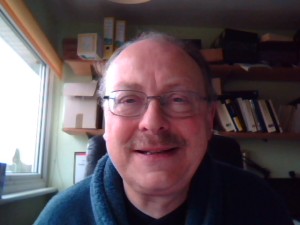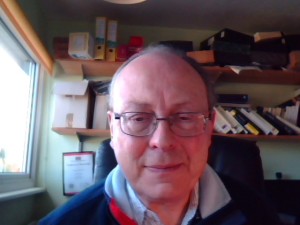 I might have written this piece a long time ago but there is a kind of shame in this sort of history even though everyone will say there is nothing about which to be ashamed.
I might have written this piece a long time ago but there is a kind of shame in this sort of history even though everyone will say there is nothing about which to be ashamed.
So here we go. I was bullied as a child and it has affected my whole life. It left an indelible stain of memories which affects me even today, and which has haunted me throughout my adult life and, of course, my career.
The bullying started when I was about six. Two girls who were a year or so older used to pick on me in the school cloakroom. Their names were Amanda (Mandy) and Lesley. They were both bigger than me. I remember their banging my head against the wall. I was terrified.
Later, when I was about nine, a boy named David used to pick on me. He was about my age but much bigger. I remember he smelled of stale urine. I do not know why I was singled out. Maybe my earlier experience had resulted in my wearing a “victim” sign around my neck. Perhaps it was because I was a clever child, mostly coming at or near the top of the class depending on my performance relative to my arch-rival, Catherine. She was a bright girl.
When I was eleven, in the last year of my primary education, I had won a free place in a very popular independent school for boys with a very good academic record. My teacher told me that going there would be like being “thrown to the wolves”. She should have told my parents. Maybe she did, but I don’t suppose they would remember.
When I went to the big school, just coming up to twelve, I was put in what amounted to a reception class for the incomers, as the school already knew about the intake from its own preparatory school. I quite enjoyed the first few weeks there. It was all new, and the school work was stimulating. We started to learn Latin.
Then one day at the end of the lunch hour, we had just been allowed back in the classroom when a fight broke out. Someone threw a chair, not intended for me, but it hit me full in the face. I was collateral damage. My eyes watered. I was really hurt. I was perceived as being a “cry baby” and from that time I was picked on.
I was never accosted on a one-to-one basis. There was one particular instigator who stands out, but he always had his cronies to deal with me if I put up too much of a fight. I was verbally abused and physically attacked in classrooms, corridors, and in the toilets. In the toilets it was pretty certain no teacher would be there to break up a beating.
After the first term I was promoted to the top stream for incomers. However, I was still haunted by my main persecutor. One day a mate of his hit me in the face with a plank of wood outside one of the school buildings. It broke my nose and I had two “shiners”.
Throughout my school career the beatings went on. I was even attacked on a coach when we were on an outing somewhere, and that with a teacher on board. I remember going home humiliated with my head and hair plastered in chewing gum which had been spat all over me. My Mum helped me wash it out. She never asked me how it happened and did not remember the incident years later. I guess I was fourteen or fifteen at the time. The memory of the shame I felt then makes me shiver even now.
As I got older, the physical abuse slackened off, and there was much more psychological abuse. When I was fifteen, sixteen and seventeen, my school books got stolen frequently as my locker was so often broken into. I had to ask the teachers for new books, and they blamed me for losing the old ones. School then was different from school now. Someone might ask questions now, but back then you were locked into school mode until you were eighteen-ish in the environment I was in.
Of course I was still a bright lad, but my marks and grades suffered, partly of course because I was often missing vital books, but also because I had lived my whole life from the age of twelve in constant fear.
My parents knew I did not like school. That would have been the only explanation for my frequently bringing up my breakfast before going. However, they did not ask me, and of course I did not tell them what happened to me at school, about the constant bullying and my continual terror. I was ashamed of being a victim, of being seen as weak, of being a failure.
Ultimately in academic terms I was a relative failure at school. When I left at seventeen I was so relieved to be away from full-time education that I declined to re-sit my exams at a local college because naively I thought the bullying would all start over again. So I got a job and went out to work, and missed the higher education I should have had.
I did enjoy the first few years working in the City. I was not bullied, but at the same time I just kept my head down. I thought a low profile would keep me safe. In the end it did not. After about ten years I had an alcoholic boss who was Senior Partner at a firm of accountants I worked for. I was not the only target of his abuse, but metaphorically I rolled up in a ball like a hedgehog to try to pretend it was not happening.
A couple of years on, realising that he had drunk himself almost to death, this man became much more benign, even nice, but he died of his habit. I felt sorry for him, but he had re-imposed the terror in me.
At the same firm a few years later another partner persistently picked on me for no obvious reason, accusing me of mistakes I had not made (because he had made them), and bawling me out in front of the whole office.
Why did I endure this? Because I got into a way of believing that I must be inferior to others, not quite good enough. I thought I could not be as able as my colleagues. I had accepted that my role was to get by, not to lead, but to do as I was told because that was all I was good enough for.
Still, maybe everyone, even someone bullied as I was, has a point where it is time to fight back. One day after I had been bawled out again I came home very angry, and that anger manifested itself in a positive way. Why it had taken so long I do not know. I resolved not to put up with this treatment anymore.
I had by this time become a junior manager or supervisor simply because of my experience. I looked for a proper manager’s job which I got with a small firm also in the City. I loved it, and though I say it myself, I was a good manager. Even so it took more years and a move to another very challenging job for me to realise that actually I was really rather good at a technical level too.
You will have gathered that I still bear the scars. Has this bullying affected my life in other ways? Well, of course. Being convinced for so many years of my inferiority, this affected my ability to begin relationships with the opposite sex. “Who would want me?”, I thought. I suppose my shyness might have attracted the bullies from the age of six onwards, but it was I am sure made much worse by the reign of terror I experienced. An eating disorder did not help in my early twenties. Later I had treatment for depression.
I am happy now, and although it took me thirty years after leaving school to find my lovely wife, I should not wish to be able to change my past. Yet throughout my education, my work and my love life there have been so many opportunities wasted.
I know I am not alone in these sorts of experiences. I know that there are those who have had far, far worse. There are policies in schools against bullying, and there are anti-bullying charities, but it worries me that many people still do not realise the damage that bullying causes, and the way that lives can be ruined.
I have climbed back to a space where I have at least perspective on all that has happened to me. Maybe that is the best I can hope for anyone who has been bullied for a long time.
 I wrote this piece more than ten years ago when someone was bullied on-line by several people after making an innocent mistake:
I wrote this piece more than ten years ago when someone was bullied on-line by several people after making an innocent mistake:









